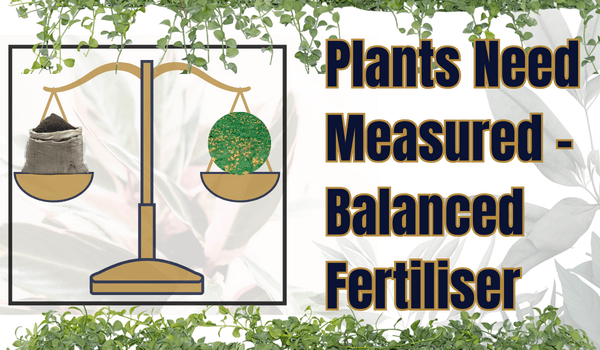The summer season is beneficial for many plants. During summers, plants receive ample sunlight, which accelerates their growth and results in abundant flowering and fruiting. To sustain and enhance plant growth during this season, it is essential to fertilise them adequately. Failure to apply fertiliser at the right time and in the right manner can adversely affect plant health. Therefore, timely and proper fertilisation is crucial to ensure optimal growth and productivity of plants during the summer months.
Manuring Plants Properly: Guide
First Choose The Right Fertiliser
Fresh or raw manure contains high levels of nutrients that can be harmful to plants, as they may cause burning. Particularly, poultry manure is considered hot. It can scorch seedlings and young plants, inhibit seed germination, or cause rapid thinning of perennial plants. Therefore, it’s crucial to select fertilisers that are well-aged or composted to avoid these detrimental effects on plant growth and health.
Use Cow Dung Manure
In summer, cow dung manure is considered the best option for fertilising plants. To use it effectively, loosen the soil lightly around the plant first. Mix equal parts of cow dung manure and soil thoroughly. Fill a bucket with this mixture and blend it well with the loosened soil. Then, remember to water the mixture adequately. Repeat this process of applying the manure every 2-3 weeks during the summer season. Avoid using chemical fertilisers during summer, as they can harm plants in hot weather conditions.
Removing Soil And Use Cow Dung Based Manure
Another method is to remove some soil from around the plant’s roots in the morning and let it soak up some sunlight for a while. Then, fill this space with a handful of cow dung and cover it with soil. Water the plant daily. This technique allows the plant to gradually absorb the cow dung’s nutrients, promoting healthy growth. Additionally, exposure to sunlight helps in the decomposition of cow dung, releasing essential nutrients into the soil over time. This method ensures that the plant receives a steady supply of nourishment while benefiting from cow dung’s natural decomposition process.
Correct Way Of Applying Manure
To apply fertiliser to plants in the soil, first loosen the soil around the plant’s base to a depth of about 2-3 inches. Then, spread a layer of compost fertiliser about 1-2 inches thick around the plant, ensuring that the roots are not disturbed. Take care to only mix the fertiliser with the top layer of soil, avoiding direct contact with the roots. When adding fertiliser to pots or containers, be cautious to apply it a little away from the stem to prevent any adverse effects on the plant due to concentrated fertiliser. This method ensures that the nutrients from the fertiliser gradually seep into the soil, providing nourishment to the plant without causing any harm.
Appropriate Watering is Must
After applying fertiliser to the plants in the garden, it is essential to water them to ensure that moisture is retained in the roots of the plants. Watering facilitates the easy absorption of nutrients from the fertiliser into the roots of the plants, and it also helps in evenly distributing moisture throughout the soil. This ensures that the plants receive the necessary nourishment and hydration for healthy growth and development. Additionally, adequate watering after fertilisation prevents the soil from becoming too dry, maintaining optimal conditions for the plants to thrive.
Using Cocopeat
To use cocopeat, take a container of water and add cocopeat bricks to it, letting them soak for about 30 minutes. Meanwhile, loosen the soil for the plants. Then, remove the cocopeat from the water and mix it well with the soil. Cocopeat helps retain moisture in the soil, preventing fungal growth on seeds or plants and promoting faster seed germination. Moreover, incorporating cocopeat into the soil helps control the growth of wild grass, as it has excellent water retention properties, keeping the soil moist and strengthening the plant roots. This process enhances the overall health and vigour of the plants, ensuring optimal growth and development.
Using Mustard Cake
Mustard cake contains approximately 2% nitrogen, 1.2% potassium, and 1.8% phosphorus, making it a valuable organic fertiliser. Mixing mustard cake powder into the soil significantly reduces the risk of diseases related to plant roots. If plants are not flowering or fruiting adequately, or if there is minimal yield, the mustard cake can be used instead of chemical fertilisers. Its application does not have any adverse effects on the vitality of plants and soil. Mustard cake can be used by mixing it with water at intervals of 15 to 20 days. The recommended ratio is 10 parts water to one part mustard cake, meaning that 100 grams of the mustard cake should be soaked in 1 litre of water and used after 5 to 6 days. This organic fertiliser provides essential nutrients to plants while maintaining soil fertility, contributing to healthier and more productive growth.
How To Manure Plants in Small Pots
If plants are growing in small pots where direct application of fertiliser might not be feasible due to limited space, it is appropriate to provide them with liquid fertiliser instead. This ensures that the plants receive the necessary nutrients for their growth and development without the need for extensive root space. Whether it’s cow dung or mustard cake fertiliser, preparing a solution of 100 grams of either of these fertilisers in 1 litre of water and then watering the plants with this solution after a few days ensures that the plants receive adequate nourishment. This method allows for efficient nutrient absorption by the plants and supports healthy growth even in confined spaces like small pots.
